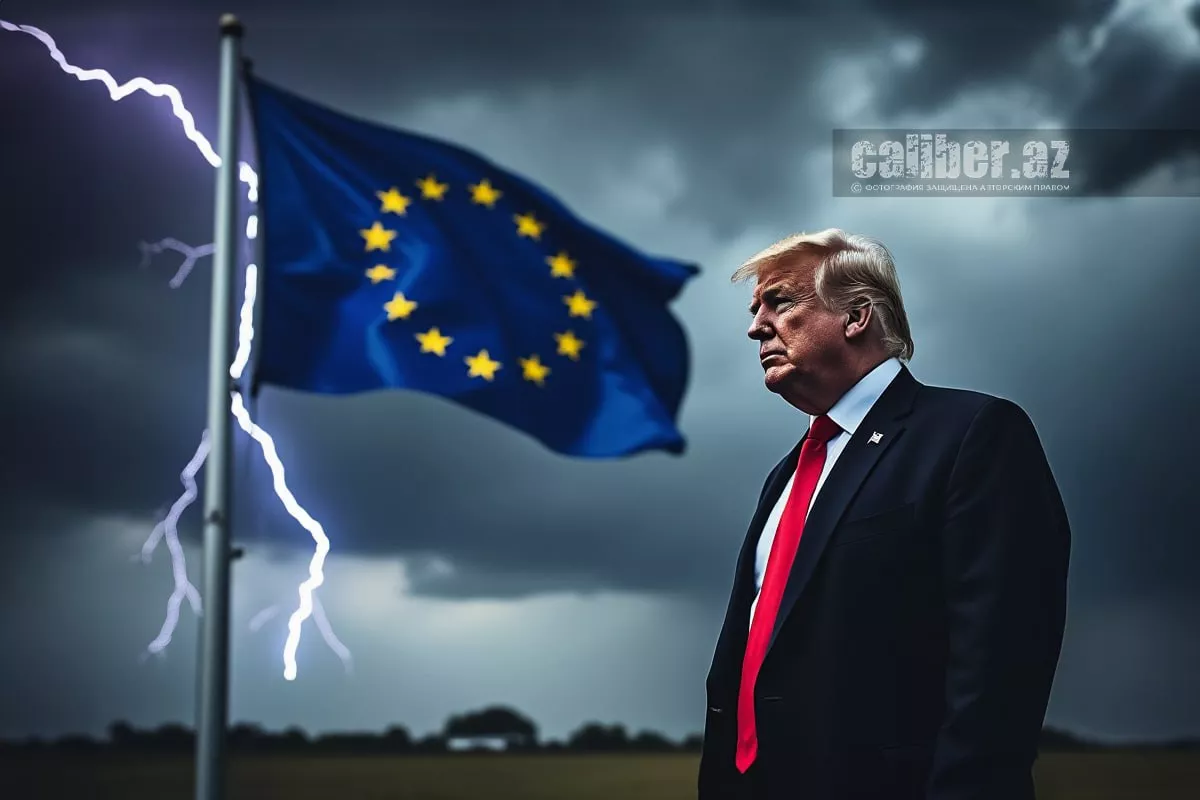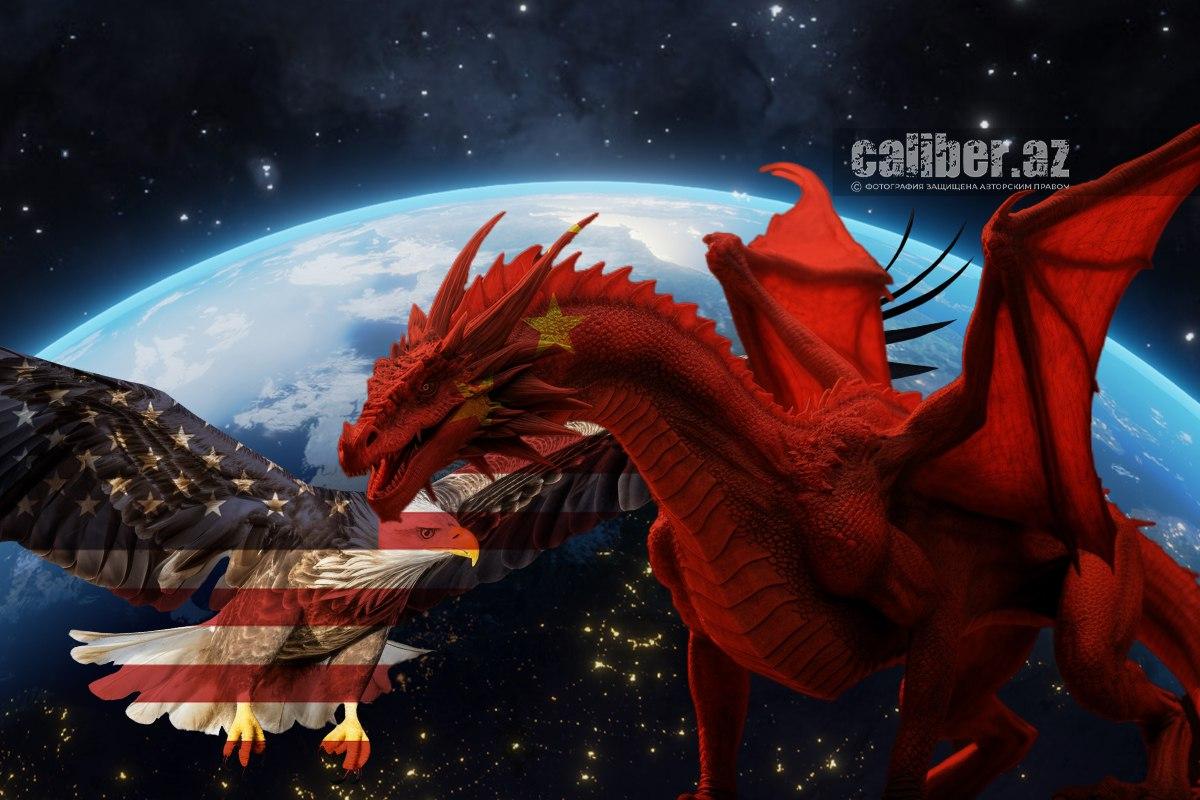Global trade war and fate of bloc-based geopolitics The US focus on China
Thunder, lightning, hurricane, storm... These are the kinds of epithets that global agencies continue to use to describe Washington's announcement of a new tariff and duty framework for foreign goods entering the United States, which President Donald Trump called "America's liberation day."
However, many politicians are concerned about the impact of this tariff saga on the bloc-based nature of international relations. But, as it appears, the "serious retaliatory measures" previously promised to Washington by its partners have yet to materialize. Yes, the bellicose rhetoric has not disappeared, but it is now being framed with refined, peace-loving language.
For example, London, which has been hit with a 10% tariff, immediately confirmed that the United States remains the "closest ally" of the United Kingdom. Against this backdrop, European Commission President Ursula von der Leyen, who just a few days ago claimed that the European Union was ready to take immediate proportional measures against the U.S., stated that "it is not too late to address concerns through negotiations." Therefore, the "cards in the EU's hands" for implementing strong countermeasures will only be used in the event of "failed negotiations." Italian Prime Minister Giorgia Meloni, commenting on the "wrongness" of Trump’s tariff policy, also highlighted the need for all possible measures to reach an agreement with the U.S. Japanese Prime Minister Shigeru Ishiba, emphasizing his "extreme disappointment" with the new Washington policy, promised to "personally ask President Trump to reconsider these measures if possible."
Next, Australian Prime Minister Anthony Albanese, indignantly stating that American tariffs contradict the foundations of partnership, immediately expressed plans to continue making strong arguments for their removal, without taking retaliatory measures.
Norwegian Prime Minister Jonas Gahr Støre, calling the latest news "very bad," also emphasized the importance of taking "all possible measures" to prevent a trade war, especially since the Americans have voiced the possibility of negotiations.
Støre’s final remark is probably the most significant, as Trump, acting in his usual style, initially declared his willingness to negotiate, providing interested parties "room for reflection." At the same time, a number of media outlets referred to his clarification that the trade barriers were meant to force both "friends and enemies" into making monetary and territorial concessions (to give something very valuable in return), adding that "we will make America great and wealthy again."

Therefore, as serious analysts conclude, there are no particular threats currently visible to the functioning of alliances such as AUKUS (U.S., Australia, and the United Kingdom) and QUAD (U.S., Australia, India, Japan). Moreover, some experts consider the timing of the announcement of American "tariff barriers" before the NATO ministerial meeting in Brussels to be no coincidence. Just before the meeting, U.S. Secretary of State Marco Rubio emphasized that each NATO member should commit to reaching 5% of GDP in defense spending. Some experts are convinced that Rubio’s statement, regarding Trump’s plans to remain in the alliance only if NATO’s viability is guaranteed, which is possible exclusively through strengthening its defense capabilities, served as part of a pre-planned U.S. strategy of playing the "good cop, bad cop" game. Earlier, U.S. Secretary of Defense Peter Hegseth had warned NATO allies not to assume that the presence of American troops in Europe would last forever, while Rubio somewhat balanced the situation by gently stating that in order to keep the U.S. in the alliance, the burden must be redistributed. In short, NATO will survive, but those dreaming of it must pay up, as the U.S. desires. European diplomacy chief, Kaja Kallas, who called Rubio’s 5% target "positive," has already noted the readiness of several countries to accept the new figures.
Thus, it appears that the bloc-based format of global geopolitics is not going anywhere. It is unlikely to have been otherwise, especially since behind all these tax-tariff frameworks, there is clearly an anti-China component. Moreover, just a few days ago, Dan Kane, nominated for the position of Chairman of the Joint Chiefs of Staff of the U.S. Armed Forces, described China as the true threat to American interests in the Indian and Pacific Ocean regions. In light of this, he declared the Indo-Pacific region (IPR) and containment of China as the highest priority for the U.S. military. While acknowledging that the U.S. lacks the capacity or flexibility needed to deter its adversaries, Kane announced the necessity of joint efforts with allies and partners to contain Beijing.

In other words, the bloc-based nature of the confrontation with China has once again come to the surface. Against this backdrop, according to some observers, one of the underlying reasons for the rapprochement between the U.S. and Russia seems to be the prevention of a powerful alliance between Moscow and Beijing that would challenge the U.S. This also explains Washington’s stance on Ukraine. However, in this case, Trump is not willing to stray from his position of quickly addressing the tasks he has outlined. Specifically, the introduction of the "tariff framework" was preceded by his first serious strike against the Kremlin, stating the possibility of imposing secondary tariffs on oil if progress toward ending the war in Ukraine was obstructed.
Although, following negotiations on April 2 with Trump's special envoy Steve Whitcoff, Russia’s Special Representative for Investment and Economic Cooperation with Foreign Countries Kirill Dmitriev stated that the White House understood Russia’s position and was "finding compromises," recently it was reported that key OPEC+ members had supported a decision to increase oil production to the highest level in the last five years. As some global agencies noted, citing a recent "closed report" from the Central Bank of Russia, the global oil market, which accounts for nearly half of Russia's export revenues, is at risk of a prolonged period of low prices, which could result from increased production by OPEC and the U.S. The scale of the crisis in the market could be comparable to the crisis of the late 1980s, which preceded the collapse of the Soviet Union.
At the same time, OPEC carefully noted that the constant increase could be suspended or canceled depending on changing conditions, and flexibility will allow member countries to accelerate the compensation of previously under-reduced volumes. Are additional comments needed here?
Be that as it may, behind all the current global intricacies, there is a clear U.S. strategy aimed at weakening China. It is possible that the European Union will try to temper the anti-European sentiment coming from the U.S., especially since Ursula von der Leyen has already expressed agreement with Trump’s interpretation of how other countries are using the flaws of the global trading system against the West, calling for a joint effort to resist this. Naturally, the term "others" here refers exclusively to China, which the European Commission President considers to be abusing the rules of global trade.
It is quite clear that Beijing is closely monitoring global developments. As a result, on April 1, the Chinese military announced the deployment of ground and missile units, as well as naval and air forces, to the shores of Taiwan for the purpose of "practicing attacks on maritime and ground targets." Naturally, China, having protested the new U.S. tariffs, declared its intention to take "strong retaliatory measures to protect its rights and interests." As emphasized by Beijing, "there are no winners in trade wars."
The reformatting of the world continues.








